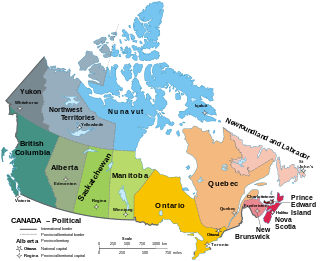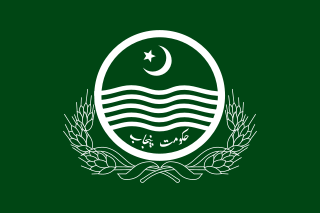Julio Oscar Quintana is an Argentines activist in the Workers' Party. He was elected as a provincial deputy in Salta Province in the provincial capital.
Julio Oscar Quintana is an Argentines activist in the Workers' Party. He was elected as a provincial deputy in Salta Province in the provincial capital.

South Africa is divided into nine provinces. On the eve of the 1994 general election, South Africa's former homelands, known as Bantustans, were reintegrated into the country, and the four provinces were increased to nine. The borders of Natal and the Orange Free State were retained, while the Cape Province and Transvaal were divided into three provinces each, plus North West Province which straddles the border of and contains territory from both these two former provinces. The twelfth, thirteenth and sixteenth amendments to the Constitution of South Africa changed the borders of seven of the provinces.

There are twelve provinces of the Netherlands representing the administrative layer between the national government and the local governments, with responsibility for matters of subnational or regional importance.

Canada has ten provinces and three territories that are sub-national administrative divisions under the jurisdiction of the Canadian Constitution. In the 1867 Canadian Confederation, three provinces of British North America—New Brunswick, Nova Scotia, and the Province of Canada —united to form a federation, becoming a fully independent country over the next century. Over its history, Canada's international borders have changed several times as it has added territories and provinces, making it the world's second-largest country by area.
The administrative divisions of China have consisted of several levels since 1412, due to China's large population and geographical area. The constitution of China provides for three levels of government. However in practice, there are five levels of local government; the provincial, prefecture, county, township, and village.

The Kingdom of Belgium is divided into three regions. Two of these regions, Flanders and Wallonia, are each subdivided into five provinces. The third region, Brussels, does not belong to any province, nor is it subdivided into provinces. Instead, it has amalgamated both regional and provincial functions into a single "Capital Region" administration.

In the Philippines, provinces are one of its primary political and administrative divisions. There are 82 provinces at present, which are further subdivided into component cities and municipalities. The local government units in the National Capital Region, as well as independent cities, are independent of any provincial government. Each province is governed by an elected legislature called the Sangguniang Panlalawigan and an elected governor.
The provinces of Thailand are administrative divisions of the government of Thailand. The country is divided into 76 provinces proper, with one additional special administrative area. They are the primary local government units and act as juristic persons. They are divided into amphoe (districts) which are further divided into tambon, the next lower level of local government.

A city is one of the units of local government in the Philippines. All Philippine cities are chartered cities, whose existence as corporate and administrative entities is governed by their own specific municipal charters in addition to the Local Government Code of 1991, which specifies their administrative structure and powers. As of July 8, 2023, there are 149 cities.

Provinces are the most numerous type of province-level divisions in the People's Republic of China (PRC). There are currently 22 provinces administered by the PRC and one province that is claimed, but not administered, which is Taiwan, currently administered by the Republic of China (ROC).
A sub-provincial division in China is a prefecture-level city governed by a province promoted by half-a-level. Thus, it is half-a-level under the provincial level, and half-a-level above the prefecture-level, hence the name "sub-provincial".
A member of Provincial Parliament (MPP) is an elected member of the Legislative Assembly of the Canadian province of Ontario. Elsewhere in Canada, the titular designation "Member of Provincial Parliament" has also been used to refer to members of the Legislative Assembly of Lower Canada from 1791 to 1838, and to members of the Legislative Assembly of Quebec from 1955 to 1968.

Syria is a unitary state, but for administrative purposes, it is divided into fourteen governorates, also called provinces or counties in English. The governorates are divided into sixty-five districts, which are further divided into subdistricts. The nawāḥī contain villages, which are the smallest administrative units.

The All-Ireland Senior Football Championship (SFC) is the premier inter-county competition in Gaelic football. County teams compete against each other and the winner is declared All-Ireland Champions.
A provincial superior is an officer of a religious institute acting under the institute's Superior General. A provincial superior exercises general supervision over all the members of that institute in a territorial division of the order called a province, which is similar to, but not to be confused with, an ecclesiastical province. Instead, the province under a provincial superior is one made up of particular churches or dioceses under the supervision of a Metropolitan Bishop. The division of a religious institute into provinces is generally along geographical lines and may consist of one or more countries, or of only a part of a country. There may be, however, one or more houses of one province situated within the physical territory of another since the jurisdiction over the individual religious is personal, rather than territorial. The title of the office is often abbreviated to Provincial.

The provinces of Burkina Faso are divided into 351 departments, whose urbanized areas are grouped into the same commune (municipality) with the same name as the department. The department also covers rural areas that are not governed locally by the elected municipal council of the commune, but by the state represented at departmental level by a prefect.

A provincial park is a park administered by one of the provinces of a country, as opposed to a national park. They are similar to state parks in other countries. They are typically open to the public for recreation. Their environment may be more or less strictly protected.

The Provincial Assembly of the Punjab is a unicameral legislature of elected representatives of the Pakistani province of Punjab, which is located in Lahore, the provincial capital. It was established under Article 106 of the Constitution of Pakistan, having a total of 371 seats, with 297 general seats, 66 seats reserved for women and 8 reserved for non-Muslims.

The Provincial Assembly of Sindh is a unicameral legislature of elected representatives of the Pakistani province of Sindh, and is located in Karachi, its provincial capital. It was established under Article 106 of the Constitution of Pakistan having a total of 168 seats, with 130 general seats, 29 seats reserved for women and 9 seats reserved for non-Muslims.
The Muskwa-Kechika Management Area is a provincially-run tract of land in the far north of British Columbia. It has an advisory board that counsels the government on land-use decisions. Established by provincial government legislation in 1998, the area is meant to be preserved as a wild area, but development is not outright forbidden; the land is divided into different zones, with varying levels of protection, although the whole area is to be used according to an overall plan. The original concept called for 25% of the land to be turned into provincial parks, 60% to become "special management zones", and 15% to become "special wild land zones", where logging would be prohibited. The original size of the M-KMA was 4,450,000 hectares. However, in 2000, with the approval of the Mackenzie Land and Resource Management Plan (LRMP), over 1,900,000 hectares were added to the M-KMA for a total area of 6,400,000 hectares —an area slightly smaller than the US state of Maine, or the entire island of Ireland, or seven times the size of Yellowstone National Park, in Wyoming.